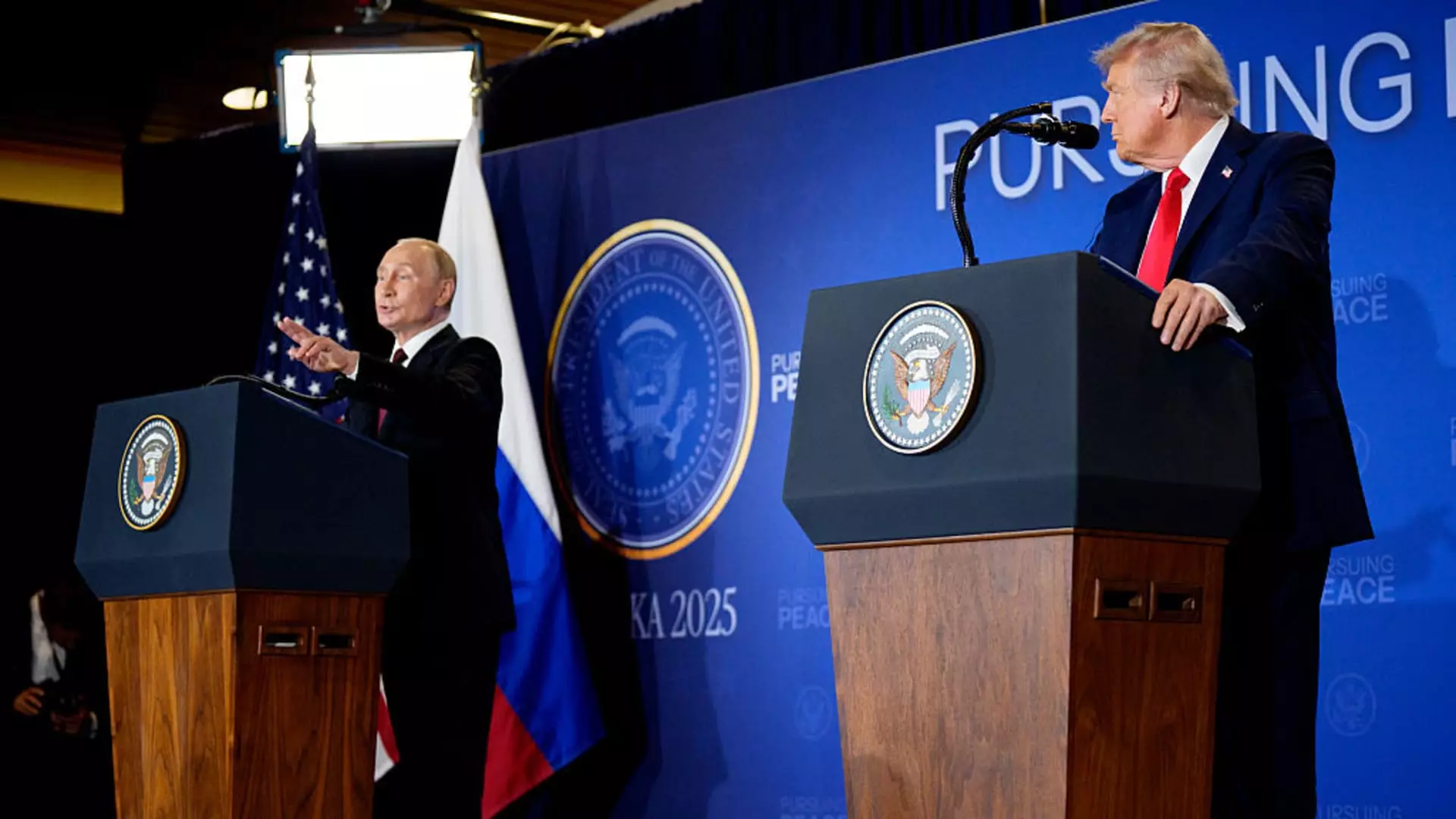The recent summit between U.S. President Donald Trump and Russia’s Vladimir Putin exemplifies the troubling trend of grand diplomacy that often amounts to little more than theater. The leaders publicly portrayed their meeting as a “productive” step toward better relations, yet behind closed doors, the truth was far more ambiguous. The summit’s actual impact on global stability is questionable at best, revealing a worrying tendency to prioritize optics over substance. It reflects a striking disconnect from the complex realities of international conflict, especially the ongoing war in Ukraine, which remains unresolved despite superficial gestures of dialogue.
Moreover, the portrayal of the summit as a “listening exercise” diminishes the gravity of diplomatic negotiations. It suggests a dismissive attitude toward genuine engagement, reducing this critical moment in geopolitics to a mere formality. The White House’s downplaying of the talks signals either strategic ambiguity or superficiality that undermines confidence in the U.S. government’s commitment to tackling pressing global issues. Such conduct risks fostering complacency rather than encouraging meaningful solutions, ultimately prioritizing short-term political narratives over long-term peace.
The Spectacle of Power: A Paradox of Posturing and Stalemate
The summit’s location in Alaska, once Russian territory, was symbolically loaded, yet it failed to bridge the profound chasm between Russia and the West. Putin, describing relations as “the lowest point since the Cold War,” positioned himself as a resilient actor, eager to restore influence that the years of sanctions and diplomatic isolation have eroded. Conversely, Trump’s vague reference to “making some headway” offers little reassurance, exposing the superficial nature of these negotiations. The leaders’ refusal to take questions further accentuates their reluctance to confront uncomfortable truths about the state of international relations.
Despite declarations of agreement on some points, the absence of tangible breakthroughs—or even clear commitments—exposes the summit as a strategic distraction. Putin’s call for another meeting in Moscow hints at an ongoing game of diplomatic brinkmanship, where words mask inaction. The lack of inclusion of Ukraine in the talks, amidst mounting concerns over sovereignty and territorial integrity, demonstrates a troubling disregard for the victims of this conflict. It reveals a diplomatic posture driven more by self-interest and geopolitical chess than genuine efforts to resolve the violence that has ravaged Ukraine.
Selective Diplomacy: A Troubling Double Standard
The conflicting narratives emerging from the summit illustrate a glaring double standard. On one hand, Trump’s claims of progress are couched in ambiguity, emphasizing that “many points” remain unresolved. On the other, Russian media boasts of a “win,” reinforcing their narrative of regained influence and respect on the world stage. This disparity underscores how diplomacy, in such settings, often becomes a contest of narrative rather than a vehicle for peace.
Trump’s call for Zelenskyy to “make a deal” highlights an unsettling tendency to externalize responsibility, framing the conflict as a matter of negotiation rather than acknowledgment of the complex human costs involved. It suggests an oversimplified view of diplomacy—one where geopolitical interests often trample over the rights of sovereign nations and their populations. By choosing to communicate in terms of “headway” and “agreements,” these leaders obscure the reality that the war’s trajectory remains uncertain, with millions caught in a cycle of violence untouched by superficial diplomatic gestures.
The Broader Implication: A Dangerously Complacent Approach to Global Security
This summit epitomizes a dangerous complacency in the face of mounting global crises. Instead of translating dialogue into concrete action, leaders parade on the world stage, making vague promises and leaving critical issues unaddressed. The ongoing failure to negotiate an end to Ukraine’s conflict exposes how high-level summits often serve as distractions orchestrated for domestic and international political gain rather than genuine efforts toward peace.
In this context, the portrayal of Russia’s invasion as a mere diplomatic hurdle reflects a troubling tendency to normalize conflict, undermining the resilience of democratic values and sovereignty. It raises serious concerns about whether such summits are fulfilling their purpose or merely providing cover for strategic retreats. The world’s appetite for performative diplomacy, coupled with the absence of enforceable commitments, risks deepening global instability rather than alleviating it. These high-stakes diplomatic exercises seem less about forging durable peace and more about showcasing power—an unsettling emulation of Cold War-style brinkmanship that threatens to set back progress toward genuine international cooperation.


Leave a Reply